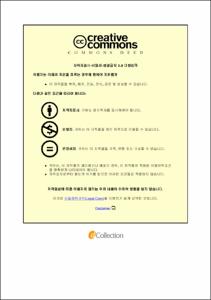대학생 전공만족도 및 자기주도학습이 진로준비행동에 미치는 영향
- Abstract
- The purpose of this study is to empirically analyze the major satisfaction of four-year college students and the impact of self-directed learning on career preparation behavior. To achieve the objectives of these studies, the following research issues were established. Research Question 1. What are the differences between college students' satisfaction with their major, self-directed learning, and career preparation behavior depending on their background factors (gender, grade, major)? Research Question 2. What is the relationship between university student's major satisfaction, self-directed learning, and career preparation behavior? Research Question 3. How does the degree of satisfaction and self-directed learning of university students affect career preparation behavior?
To solve the above problem, a survey was conducted on 350 students of four-year college students in Busan and Gyeongsangnam-do, and statistical analysis was conducted on 301 copies of the effective questionnaire using the SPSS Ver. 23.0 program. Frequency analysis and technical statistical analysis were conducted to analyze the general characteristics and the distribution of variables in this study, and independent sample t-verification and one-way ANOVA (One-way ANOVA) were conducted to determine whether there are differences in career preparation behavior, major satisfaction, and self-directed learning depending on the general characteristics. In addition, a correlation analysis was conducted to identify the relationship between career preparation actions, satisfaction level of majors, and self-directed learning. Finally, multiple regression analysis was conducted to analyze the impact of major satisfaction and self-directed learning on college students' career preparation behavior. The results of the study are as follows. First, when looking at the difference between college students' major satisfaction, self-directed learning, and career preparation behavior, the difference between gender-specific variables was not statistically significant. On the other hand, the difference between the variables by grade showed only meaningful differences in major satisfaction, and among the sub-factors of major satisfaction, "textual satisfaction" and "relationship satisfaction" showed statistically significant differences depending on grade. In addition, the difference between the variables according to the major was significant only in "learning strategies" and "learning situations" among all sub- and self-directed learning sub-factors of the major satisfaction level. Second, university students' satisfaction with their majors, self-directed learning and career preparation activities were all found to be correlated. Third, college students' satisfaction with their majors was found to have no impact on career preparation behavior, while self-directed learning showed that "learning motivation" and "self-awareness" among the lower factors had a static impact on career preparation behavior. It is hoped that various career counseling programs will be developed to reduce confusion about college students' careers by compiling the results of this study. Also, in class as well as career counseling, the professor hopes that his or her classes will help students think more about teaching methods for students than now so that they can explore their own careers and develop self-directedness on their own.
Key words: Major satisfaction, self-directed learning, career preparation behavior
- Issued Date
- 2020
- Awarded Date
- 2020. 8
- Type
- Dissertation
- Publisher
- 부경대학교
- Affiliation
- 부경대학교 대학원
- Department
- 대학원 교육컨설팅학과
- Advisor
- 주동범
- Table Of Contents
- Ⅰ. 서 론 1
1. 연구의 필요성 및 목적 1
2. 연구 문제 7
3. 용어의 정의 8
가. 전공만족도 8
나. 자기주도학습 8
다. 진로준비행동 9
Ⅱ. 이론적 배경 10
1. 전공만족도 10
가. 전공만족도의 개념 및 구성요인 10
나. 전공만족도 관련 선행연구 12
2. 자기주도학습 14
가. 자기주도학습의 개념 및 구성요인 14
나. 자기주도학습 관련 선행연구 18
3. 진로준비행동 23
가. 진로준비행동의 개념 및 구성요인 23
나. 진로준비행동 관련 선행연구 26
4. 선행연구 고찰 28
가. 전공만족도와 진로준비행동의 관계에 관한 선행연구 28
나. 자기주도학습과 진로준비행동의 관계에 관한 선행연구 29
Ⅲ. 연구방법 30
1. 연구대상 및 절차 30
2. 측정도구 31
가. 전공만족도 31
나. 자기주도학습 32
다. 진로준비행동 34
3. 자료 처리 35
Ⅳ. 연구결과 36
1. 변인의 기술통계 36
2. 일반적 특성에 따른 차이 검증 38
가. 일반적 특성에 따른 전공만족도의 차이 38
나. 일반적 특성에 따른 자기주도학습의 차이 42
다. 일반적 특성에 따른 진로준비행동의 차이 45
3. 변인 간 상관관계 49
4. 전공만족도와 자기주도학습이 진로준비행동에 미치는 영향 51
가. 전공만족도와 자기주도학습이 진로준비행동에 미치는 영향 51
나. 전공만족도와 자기주도학습이 진로준비행동 하위요인에 미치는 영향 52
Ⅴ. 논의 및 결론 57
1. 논의 57
가. 대학생의 배경변인에 따른 전공만족도, 자기주도학습, 진로준비 행동 57
나. 대학생의 전공만족도, 자기주도학습, 진로준비행동 간의 상과 관계 59
다. 대학생의 전공만족도, 자기주도학습이 진로결정수준에 미치는 영향 60
2. 결론 및 제언 63
가. 결론 63
나. 제언 64
참고문헌 66
부 록 79
- Degree
- Master
- Files in This Item:
-
-
Download
 대학생 전공만족도 및 자기주도학습이 진로준비행동에 미치는 영향.pdf
기타 데이터 / 751.5 kB / Adobe PDF
대학생 전공만족도 및 자기주도학습이 진로준비행동에 미치는 영향.pdf
기타 데이터 / 751.5 kB / Adobe PDF
-
Items in Repository are protected by copyright, with all rights reserved, unless otherwise indicated.